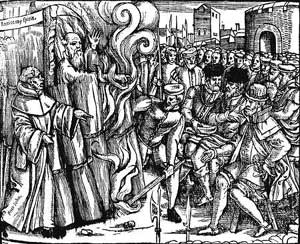I remember learning in school about the Inuit (we called them eskimos then, of course) and how they used every last part of the caribou: skins for blankets, hides for wigwams, sinew for thread, bones for needles. Not a scrap was wasted, we were told, and we marvelled at this. Such a contrast to the way we lived even then.
I spent this past weekend with my good friends Lydia and Robert, co-creators of Thrift Cottage, and had the usual restful and inspiring time. Robert's knowledge of the natural world - trees and woodworking are his speciality - is something he has learned from joiners and carpenters he has worked with who come from a different era. He is always full of wisdom about his craft that is humbling to somebody like me who lives from their brain.

This weekend's gem was a short history of faggots and tallow. These two fundamental parts of the lives of our ancestors just a generation or two ago have slipped out of consciousness. The only picture I have ever seen of a faggot is on the woodcut from Foxe's Book of English Martyrs, but I was interested in converting garden and agricultural waste into fuel and so asked Robert how it is done.
His brother is the tallow man - he recreated by laborious practice the means of extracting this most useful substance from sheep's testicles (didn't I say everything had a use?) following instructions he found in a book from the 1960s. Boatbuilders and joiners are still using blocks of this natural lubricant. Robert says it is the best way of easing a screw into a piece of oak and the only lubricant that resists the tree's attempt to use its natural juices to keep it there. That puts high technology into its place. Tweet
No comments:
Post a Comment